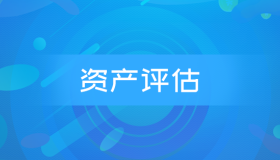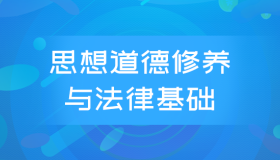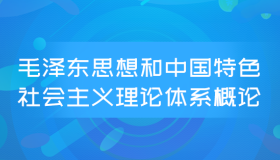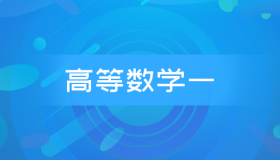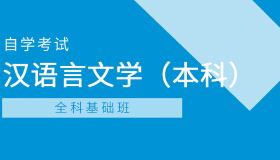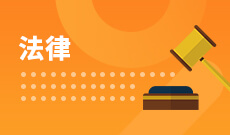自考高级英语课文逐句翻译四
《自考视频课程》名师讲解,轻松易懂,助您轻松上岸!低至199元/科!
lesson4
自己选择死亡方式
Lesson Four Die as You Choose
制定关于安乐死的法律已经到了不能再回避的地步。
The need for laws on euthanasia cannot be dodged for much longer.
在世界上某个较小的国家里,安乐死被医疗机构普遍接受,每年都有数千例公开实施。
In one of the world's smaller countries, mercy-killing is accepted by the medical establishment and openly practiced a few thousand times each year.
而在某个世界大国,安乐死虽然经常受到医疗机构的公开谴责,每年却以数倍于此的次数秘密实施,且从未公之于众。
In one of the world's biggest countries, euthanasia is condemned by the medical establishment, secretly practiced many times more often, and almost never comes to light.
但是,在上述那个国家有医生因为实施安乐死而在监狱里服刑呢?
Which of these countries has a mercy-killing doctor now languishing in its jails?
是在小国荷兰。荷兰制定了有关安乐死的法律,能有效地管理它。
It is the small one, Holland, which has rules for euthanasia and so can police it effectively.
那位荷兰的医生违反了他国家的规定。
The Dutch doctor broke his country's rules.
有关安乐死的问题在所有国家都存在,决不仅出现在美国这个禁止安乐死的大国。
There is a moral here for all the countries, and not just for the big death-forbidding country, America.
目前美国正再次展开有关安乐死的辩论。
Right now it is going over the arguments about euthanasia once again.
美国医学协会会刊1月份发表了一封非同寻常的来信。一位医生在信中宣称自己按照病人的意愿,杀死了一位身患癌症的20岁女孩。
In January the Journal of the American Medical Association published a bizarre letter, in which an anonymous doctor claimed to have killed a 20-year-old cancer patient at her own request.
这件事引起了一场辩论,而这场辩论将轰轰烈烈地持续到秋季,那时加利福尼亚州可能会就一项使安乐死合法化的法律进行投票表决。
This started a debate that will rumble on into the autumn, when Californians may vote on a proposed law legalizing euthanasia.
这封信可能是为了起到引发争论的效果,内容并不可信。
The letter was probably written for polemical impact. It is scarcely credible.
是作者自己在信中声称他(或她)第一次与那位得了癌症的病人见面,听到病人说出5个字——“让我去死吧”——然后就杀了她。
It's author claims that he met the cancer patient for the first time, heard five words from her – “Let's get this over with” – then killer her.
即使是极端的安乐死支持者也不赞成在这种情况下采取如此做法。
Even the most extreme proponents of euthanasia do not support such an action in those circumstances.
然而,医疗上出现的可怕事件如洪水猛兽一般,并不比安乐死的情况更好。它们无疑会在英美以及其他国家中继续肆虐,几乎成了令人恐怖的常规。
Yet medical monstrosities that are hardly any better undoubtedly continue, almost as a matter of macabre routine, in America, Britain and many other countries.
一些医生私下透露他们有时会故意杀死病人,这样的情况非常普遍,令人担忧。
It is disturbingly easy to find doctors who will say, in private, that they sometimes kill patients on purpose.
多数医生说他们知道其他医生也有同样的行为,但是因为即使在病人乞求他们的时候,医生也几乎不能与病人公开讨论安乐死,因此医生往往倾向于仅在要死的人处于垂危昏迷之际而无法表达是否同意安乐死时,才结束其生命。
Most say that know somebody else who does. But because they can rarely discuss euthanasia openly with patients – even when those patients beg them for it – doctors tend to kill only when the dying are too far gone to consent.
由于自愿要求安乐死受到禁止,就只能由医生自行作出决定了,病人会在夜间受到药物注射而非自愿地离开人世。
Thus, because voluntary euthanasia is taboo, a doctor makes the decision himself – and the patient is killed involuntarily in the night with a syringe.
这是不使安乐死公开的代价。
That is one price of keeping euthanasia secret.
如果所有形式的安乐死都是错误的,那就应该统统列入禁止之列。
If all forms of mercy-killing are wrong, they should remain taboo.
可情况果真如此吗?
But are they?
许多人都认为依靠医学技术来延续生命带给人的痛苦是令人悲哀、可憎可恶的,完全不顾人的尊严,因此被动的安乐死——让病人自行死亡——被人们普遍接受。
Because many people accept that it is sad, undignified and gruesome to prolong the throes of death will all the might of medical technology, passive euthanasia – letting patients die – is widely accepted.
美国大多数州都有关于“活遗嘱”的法规,为医生提供保护。如果医生没有尽力救助曾声明不想延续生命的病人,不会为此受到起诉。
Most American states have “living – will” legislation that protects doctors from prosecution if they do not try to save someone who has said he does not want life prolonged.
主动的安乐死——杀死病人——却依然争论颇多。
Active euthanasia – killing – remains controversial.
将人杀死与让人死亡之间的界线还能维持多久呢?
How long can the distinction between killing and letting die hold out?
正如因未履行某种职责受到处罚一样,人也可能因干了某事而不受责难。
Just as there can be culpable omissions, so too can there be blameless acts.
让我们从道德伦理著作中举例说明。假定一个人会从某个孩子的死亡中获益,当这个孩子在浴缸中撞伤头部而失去知觉时,那个人视而不见,任其溺水身亡。
Suppose – to take an example from the moral philosophy books – that a man stands to gain from the death of a certain child. The child strikes his head in the bath and falls unconscious. The man sits down and watches him drown.
虽然这个人什么都没有做,但他并不能因此开脱罪责。
The fact that the man has performed no action does not excuse him.
同样,再假设为了缩短而不是延长死亡到来的时间,医生终止某种治疗是无可指责的做法,那么如果这位医生使用足够的镇痛剂致使病人死亡,他就一定大错特错吗?
Similarly, suppose that a doctor does no wrong by withholding some treatment in order that death should come sooner rather than later. Is he then necessarily wrong if he administers enough painkillers to kill?
这位医生采取了某种行动,而不是未尽某种职责,这会使他有罪吗?
Does the fact that the doctor performed an action, rather than an omission, condemn him?
许多医生一直在为解除病人临终前的痛苦而奋斗着。他们认为在病人请求安乐死时,根本无法截然区分被动与主动的安乐死。
Many doctors working on the battlefield of terminal suffering think that only squeamishness demands a firm difference between passive and active euthanasia on request.
他们赞成医生杀死病人的理由是:医生的职责之一就是使病人免遭痛苦,这是医生所做的全部事情,而杀死病人则是做到这一点的惟一办法。
Their argument for killing goes like this: one of a doctor's duties is to prevent suffering; sometimes that is all there is left for him to do, and killing is the only way to do it.
这个观点并不新颖。当希波克拉底为医生制定信条的时候,曾明确禁止安乐死,而多数其他希腊医生和思想家都不赞成这一禁令。
There is nothing new in this view. When Hippocrates formulated his oath for doctors, which explicitly rules out active killing, most other Greek doctors and thinkers disagreed with his ban.
前事不忘,后事之师。
Let the past be a guide.
有人认为死亡的时间是上帝安排的,任何人不得缩短他人的生命,然而假如一位病人的人生观使其接受安乐死,那么人们不禁要问:为什么其他人还要用不同的宗教观念去干预其死亡呢?
Some people believe that the time of death is appointed by God and that no man should put the clock back on another. Yet if a patient's philosophical views embrace euthanasia, it is not clear why the religious objections of others should intrude on his death.
另一个令人担忧问题是,有关安乐死的法律体系允许医生在规定的情况下按照垂死病人的请求实施安乐死,就可能为杀人首开先例,从而危害社会。
Another worry is that a legal framework for euthanasia, permitting a doctor to comply with a dying man's request in a prescribed set of circumstances, might pose dangers for society by setting a precedent for killing.
这个问题取决于社会。
That depends on the society.
尽管有不同意见,荷兰对建立这样的法律体系已经准备就绪。
Holland, arguably, is ready for it.
当年就是荷兰医生英勇无比地顶住了压力,拒绝参与使安乐死声名狼藉的纳粹用人体进行医学实验的暴行,这恐怕不是巧合。
It is probably no coincidence that it was Dutch doctors who most heroically resisted pressure to join in the Nazi medical atrocities that have given euthanasia its worst name.
这些医生对个人自由坚定不移的尊重使他们没有杀害渴望活下去的健康人。今天正是同样的精神又使他们去帮助不愿活下去的垂危病人。
The same tenacious respect for inspanidual liberty that stopped them killing healthy people, who did not want to die, now lets them help dying people who do.
与之相反,西德在未来相当长的时间里都无法使任何形式的安乐死合法化。
West Germany, by contrast, will not be able to legalize any form of euthanasia for a long time to come.
由于历史的阴影反对安乐死的力量异常强大,在那些近年来自由意志的传统未受任何干扰的国家里,为自愿安乐死制定有限的规定并不会使人们产生太多的恐惧。
Opposition is too fierce, because of the shadow of the past. Countries with an uninterrupted recent libertarian tradition have less to fear from setting some limited rules for voluntary euthanasia.
拒绝讨论这个问题会使情况更加糟糕。
By refusing to discuss it, they usher in something worse.
以上就是关于《自考高级英语课文逐句翻译四》的全部内容,想了解更多湖南自考资讯,请持续关注《湖南自考网》。如有需要,考生可点击《湖南自考网助学报名入口》进行报名,或点击添加《招生老师微信》进行咨询解答和报名服务哦~
本文标签:湖南自考 湖南自考文学类 自考高级英语课文逐句翻译四
转载请注明:文章转载自(http://www.hnzk.hn.cn)
《湖南自考网》免责声明
1、由于各方面情况的调整与变化,本网提供的考试信息仅供参考,考试信息以省考试院及院校官方发布的信息为准。
2、本网信息来源为其他媒体的稿件转载,免费转载出于非商业性学习目的,版权归原作者所有,如有内容与版权问题等请与本站联系。联系邮箱:812379481@qq.com







